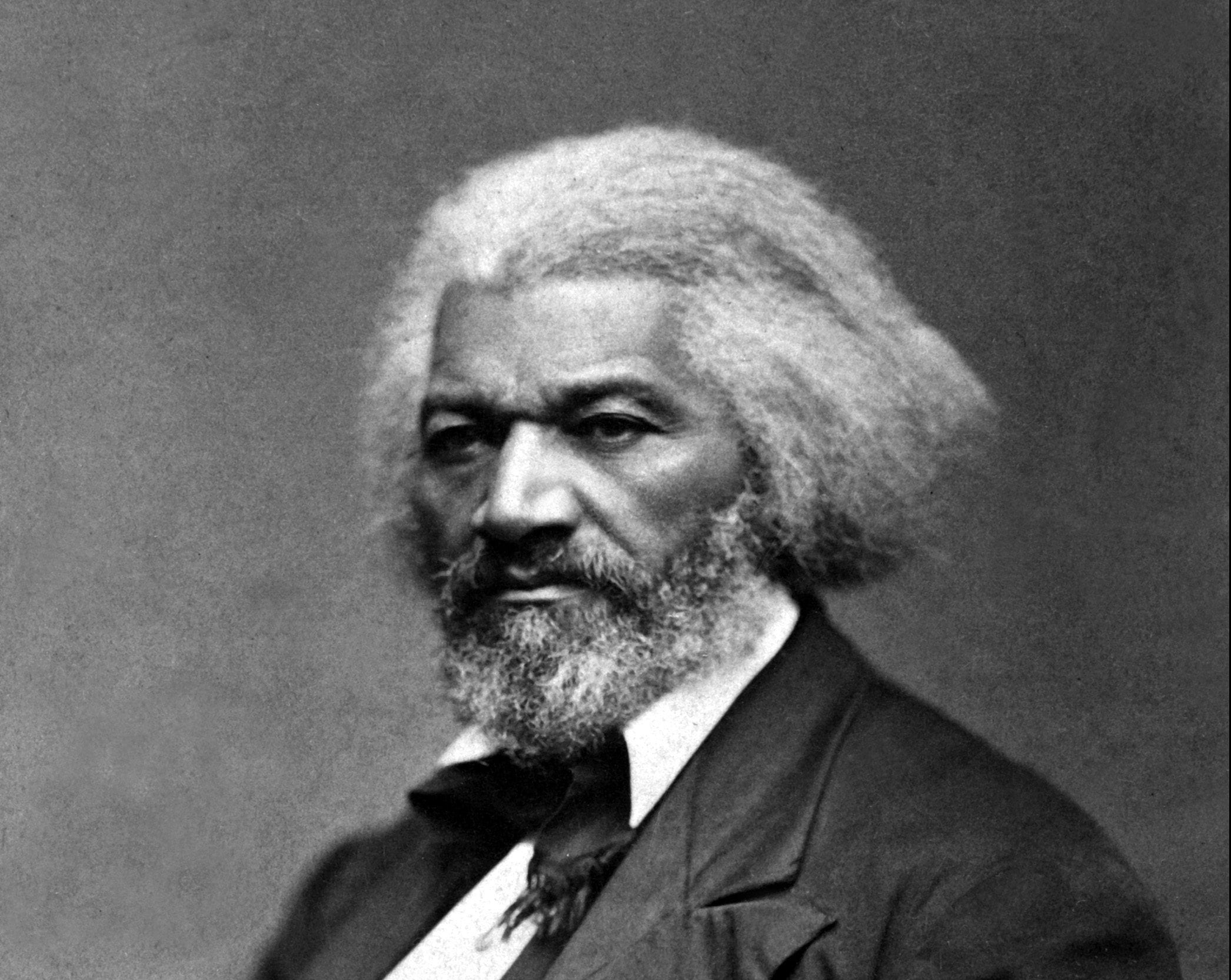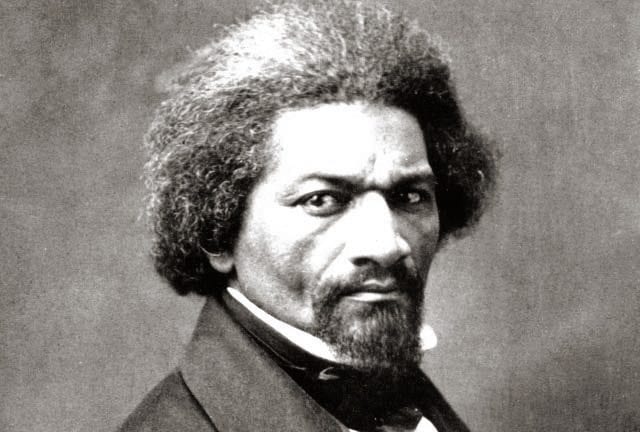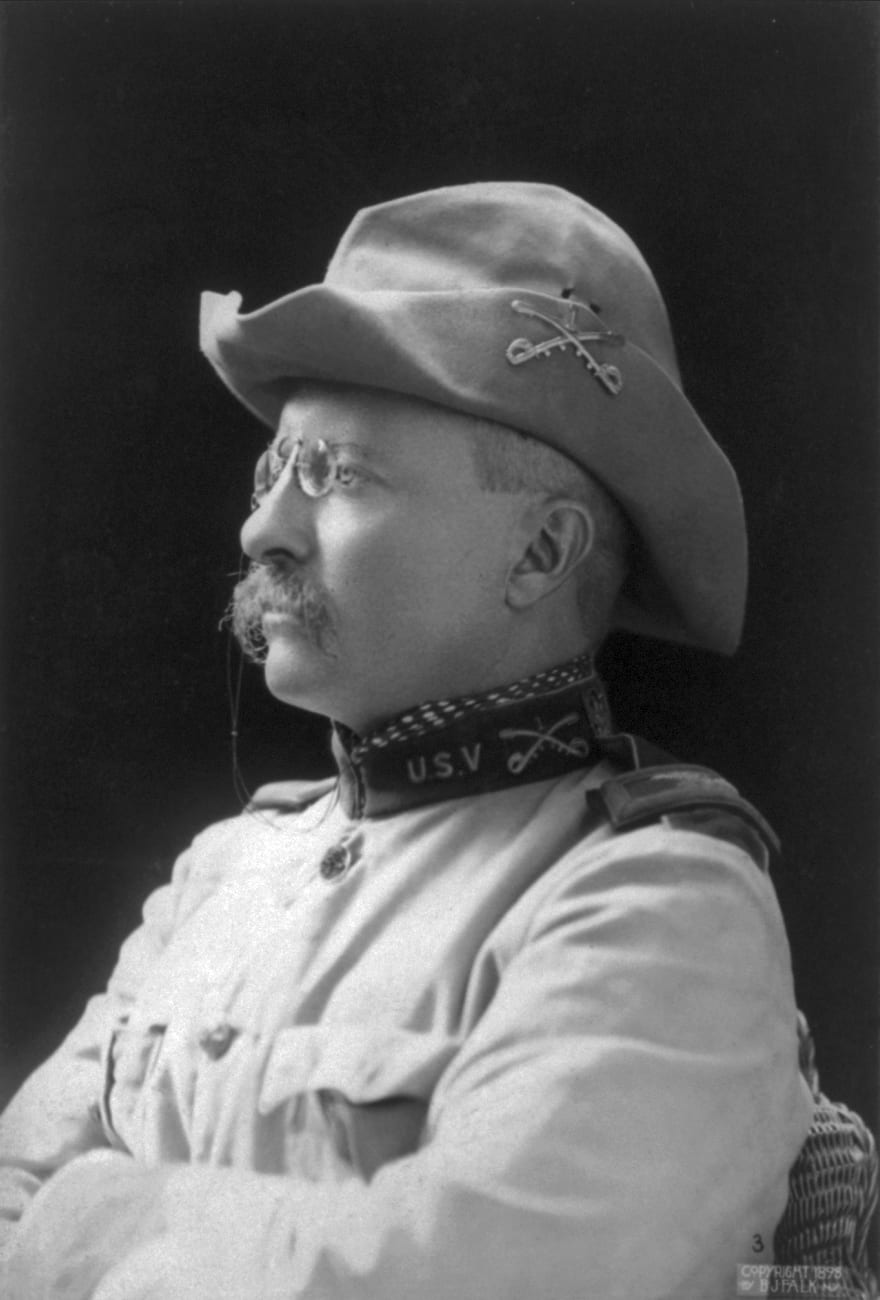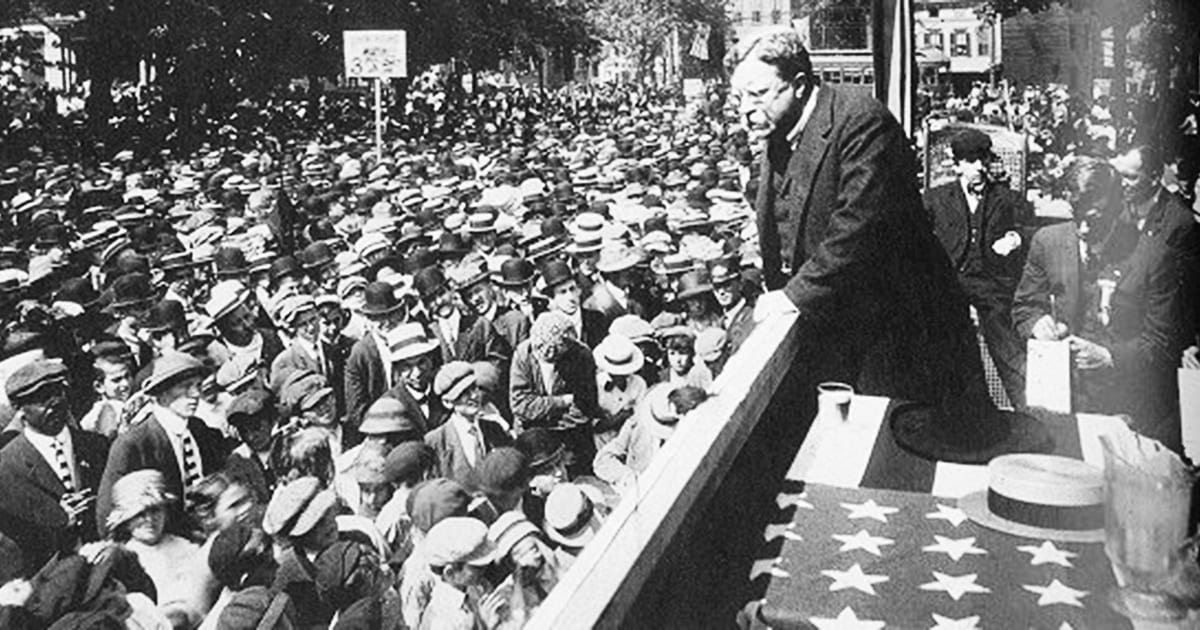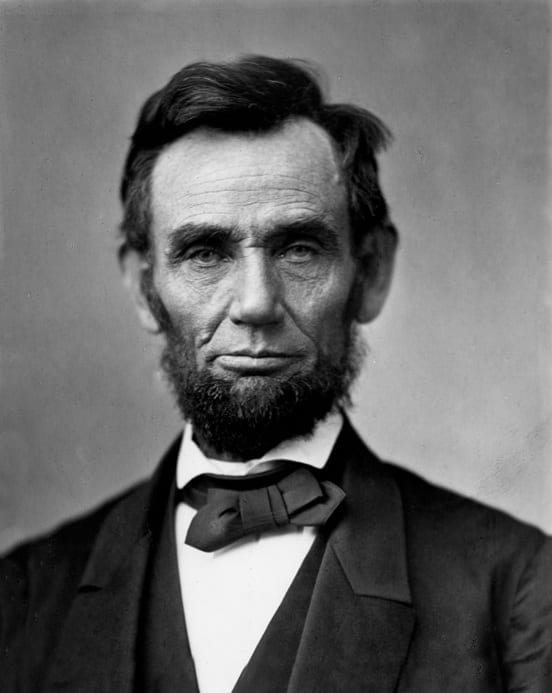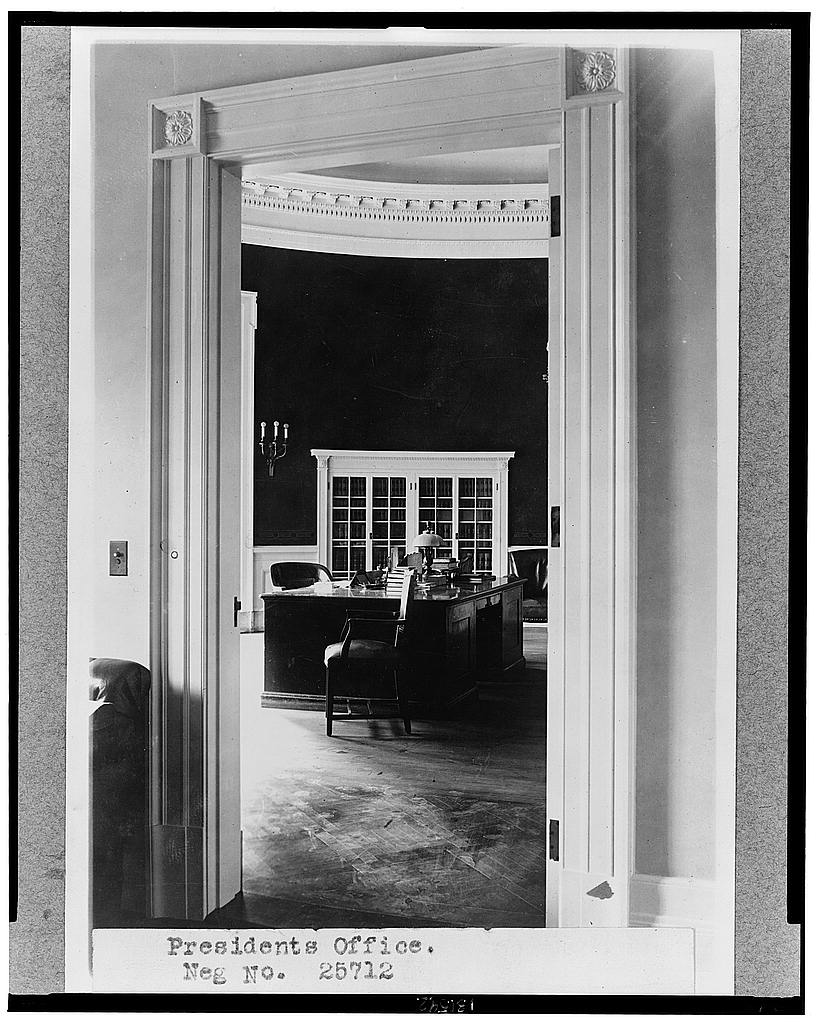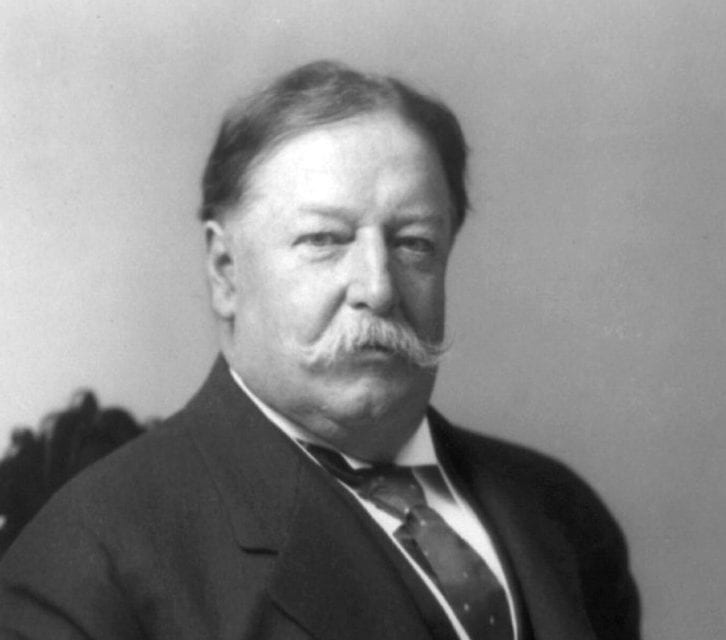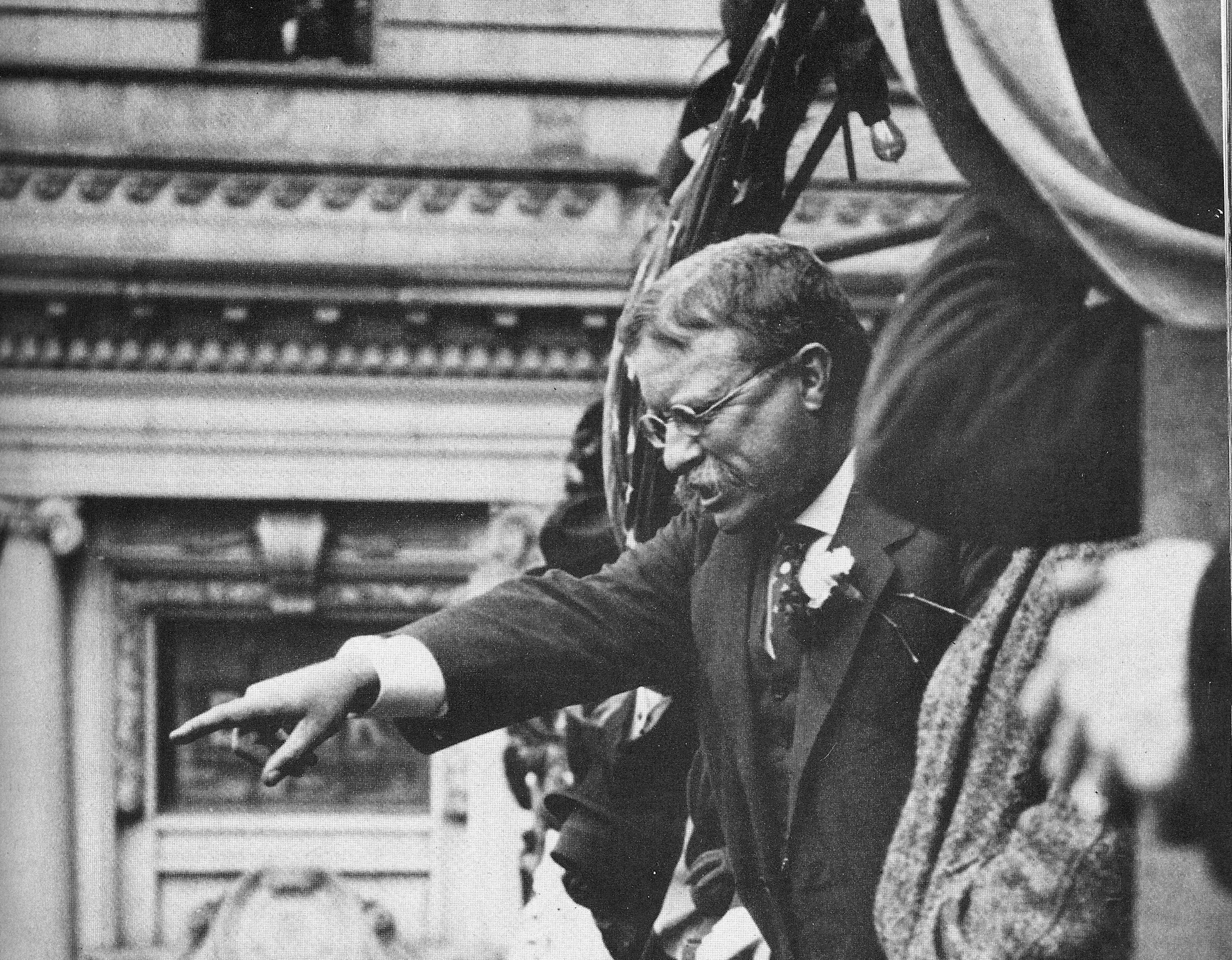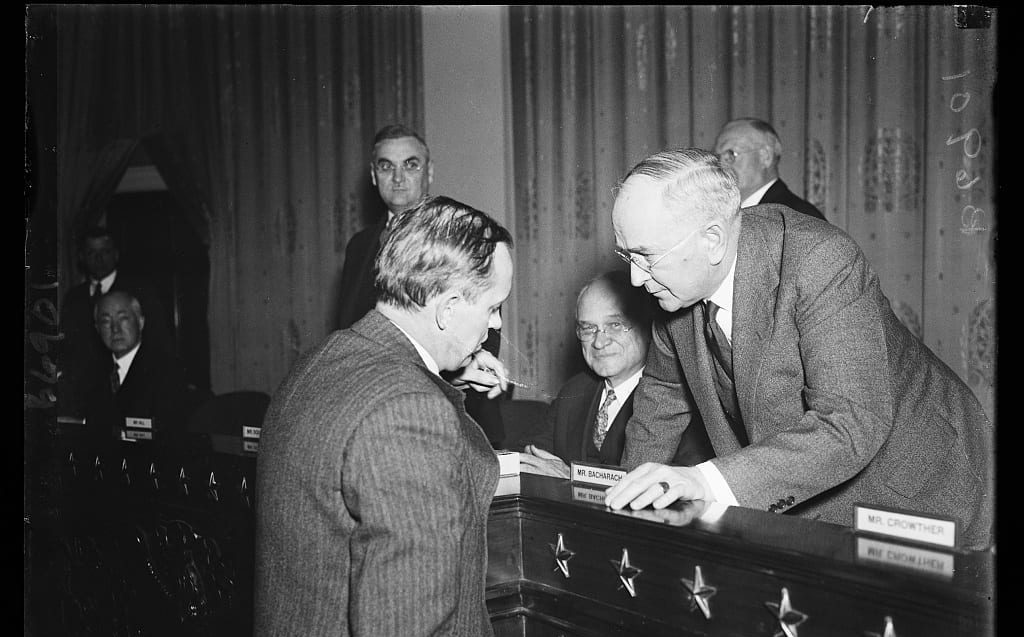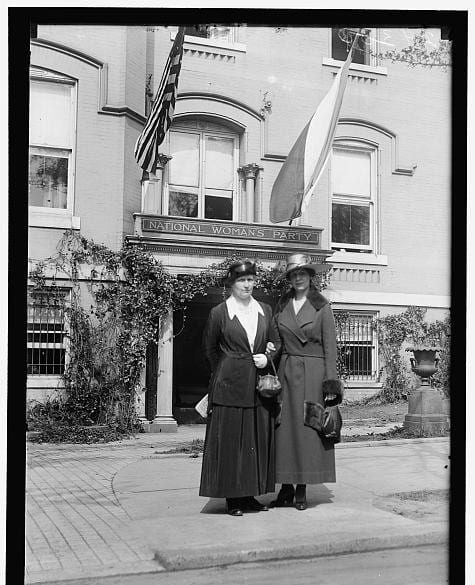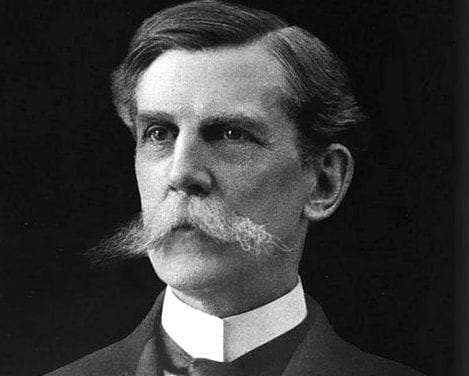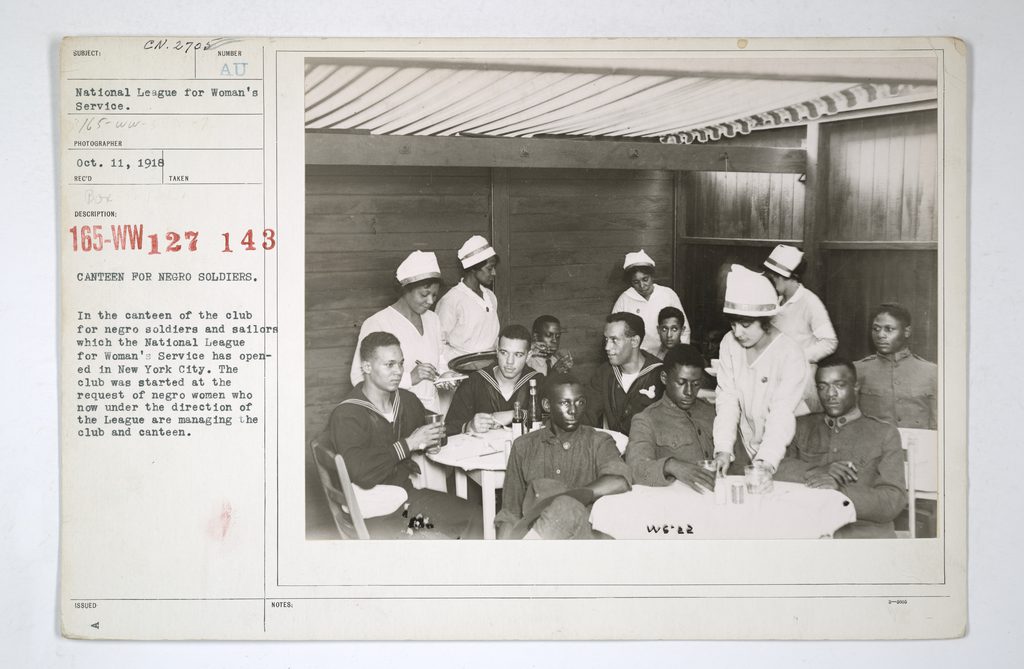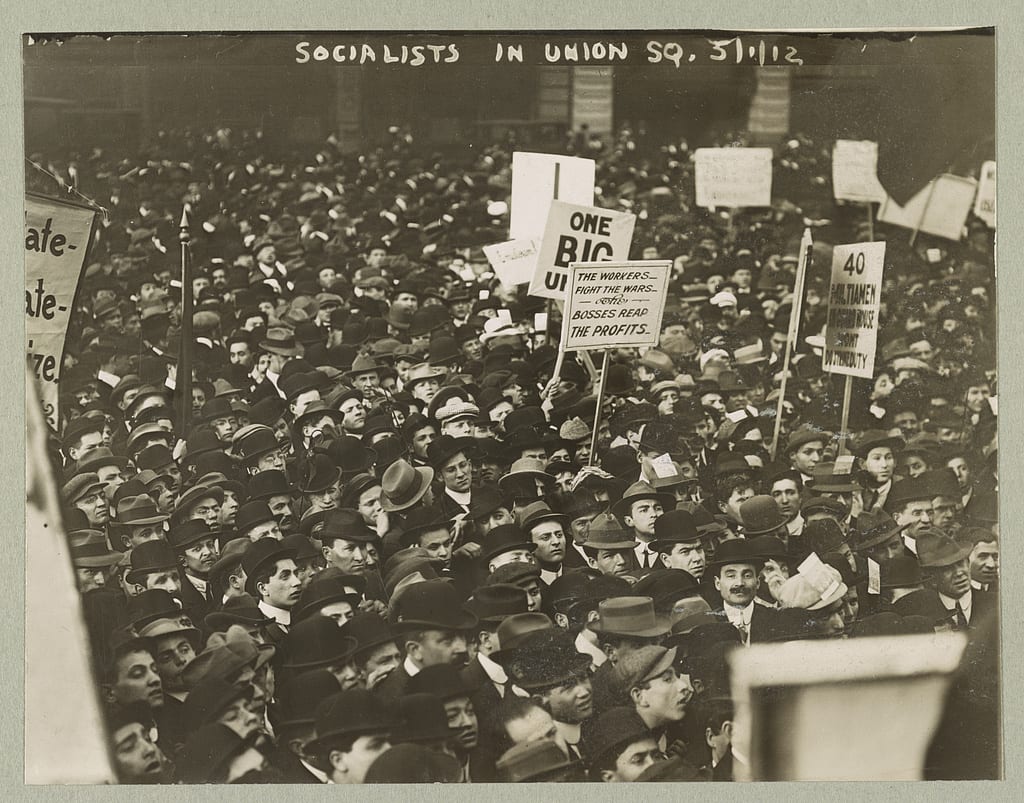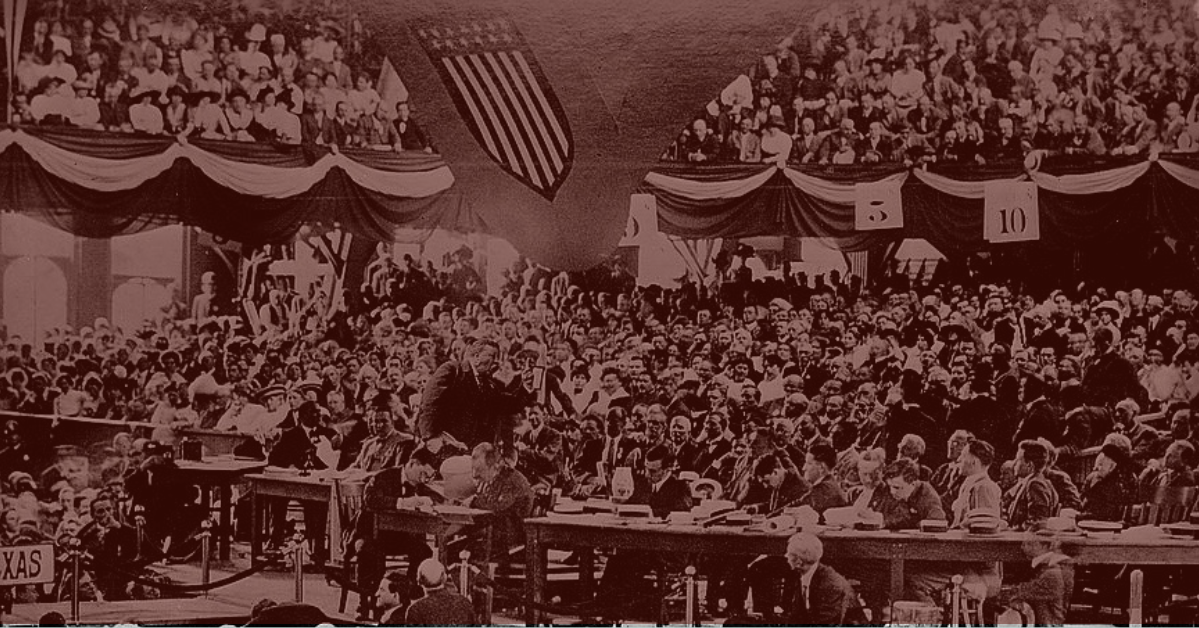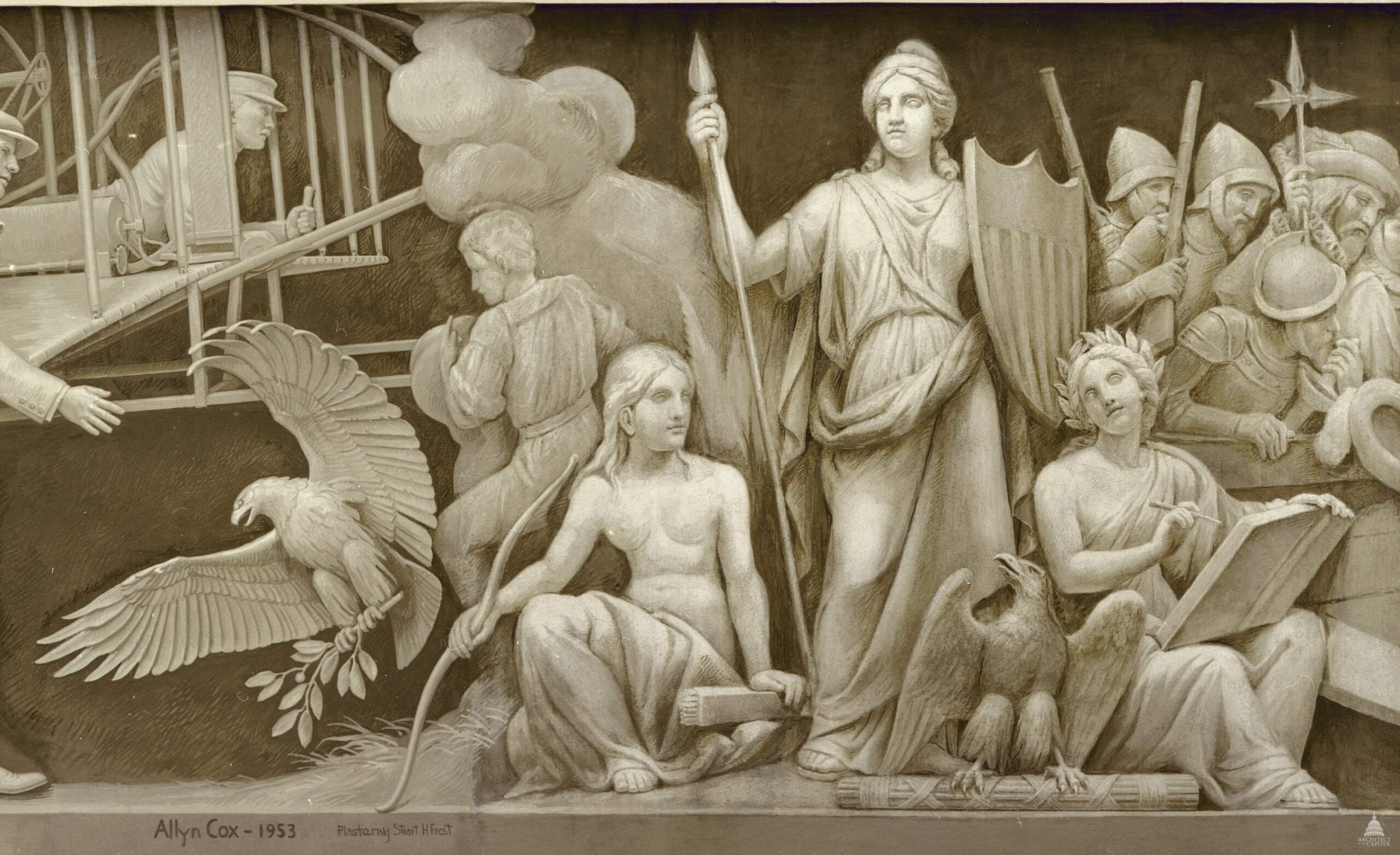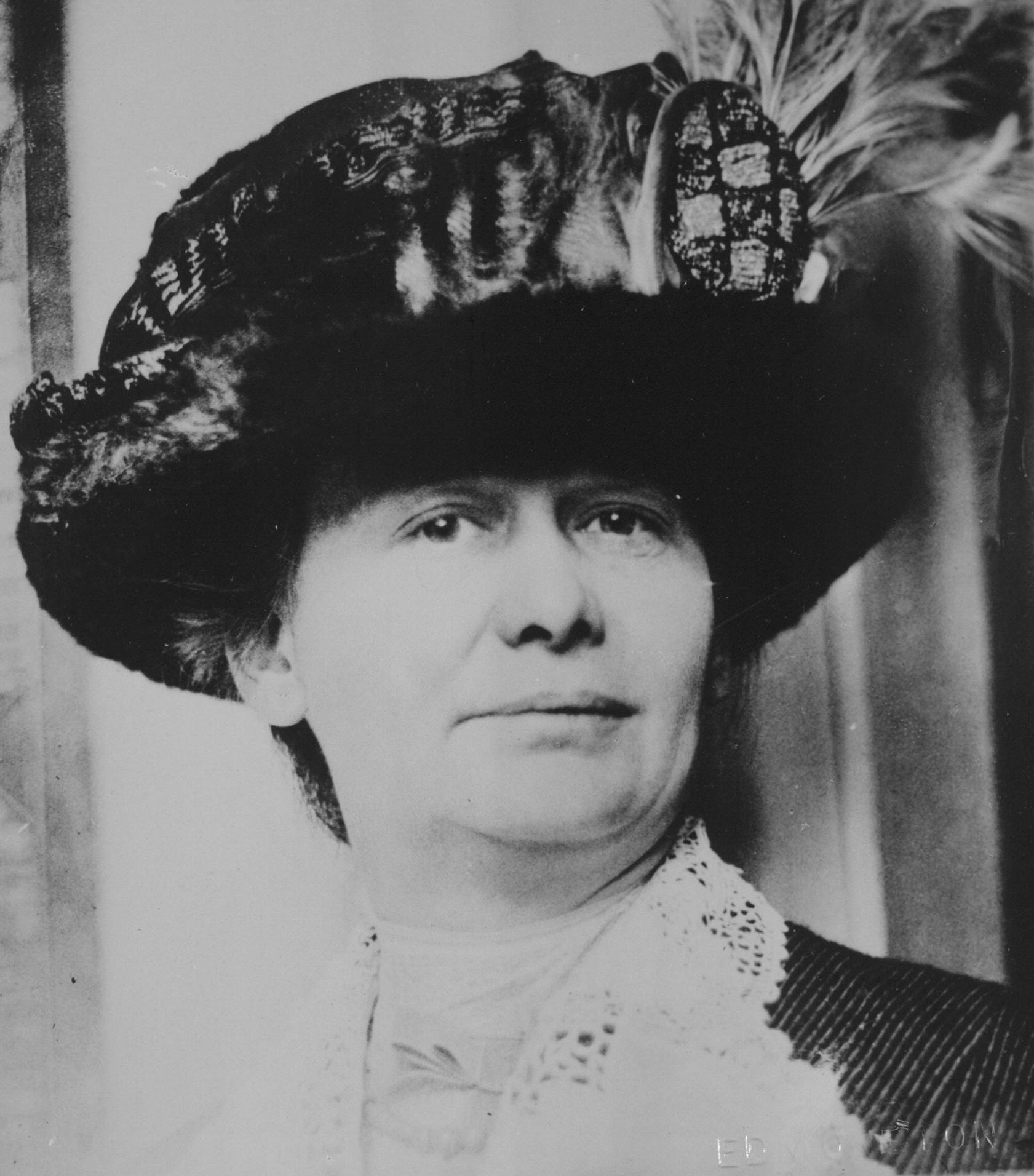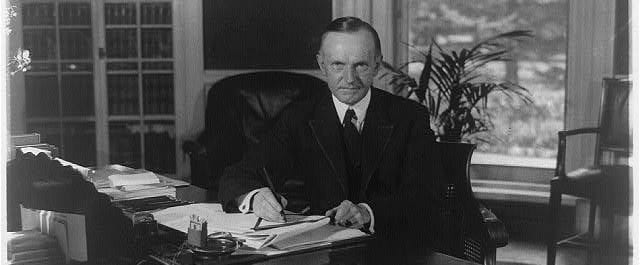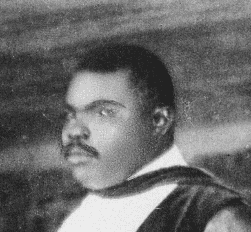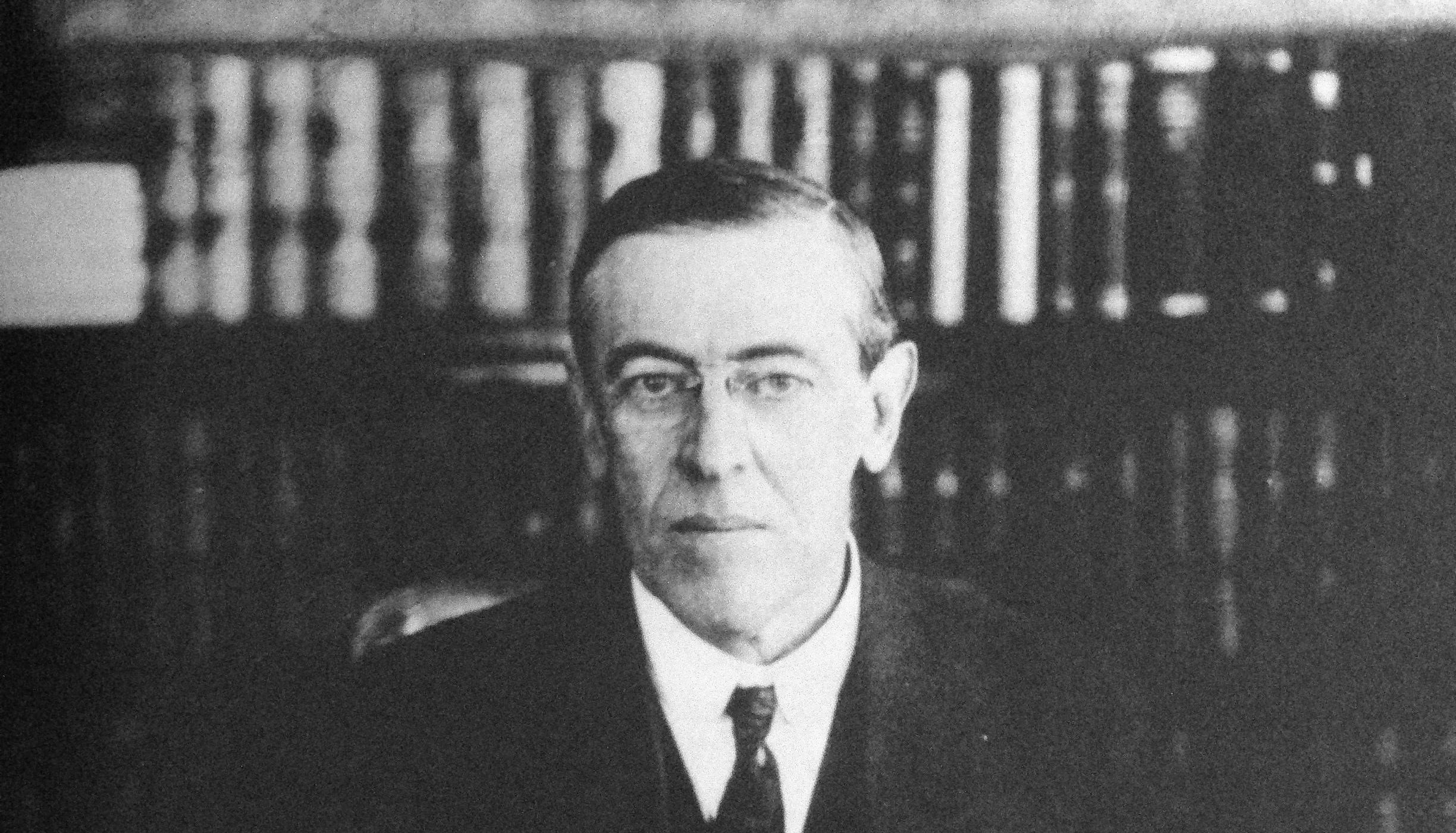
Introduction
Inspired by the radicalism of the British suffragist movement, Alice Paul (1885–1977) started the National Woman’s Party (NWP) in 1916. This organization incorporated more controversial and confrontational measures than the more conservative and traditional National American Woman Suffrage Association. From throwing suffrage parades to a twenty-four-hour picket of the White House, the NWP helped bring attention to the suffrage cause that eventually engendered the Nineteenth Amendment to the U.S. Constitution, which gave women the right to vote.
After the Nineteenth Amendment was ratified, Paul dedicated the rest of her life to securing women’s rights and even more legal protections; along with Crystal Eastman, she drafted the Equal Rights Amendment, which was proposed to Congress in 1923 by Representative Daniel R. Anthony (1870–1931), the nephew of Susan B. Anthony (1920–1906). This amendment to the Constitution would have guaranteed men and women “equal rights throughout the United States and every place subject to its jurisdiction.” Opponents of the amendment (like Benjamin Loring Young, speaker of the Massachusetts House of Representatives from 1921 to 1924) argued that its sweeping language would actually prove detrimental to gains women had made in areas like divorce laws, labor reform, and education.
Source: Legislative Leaflet Issued by the Legislative Council, 2/1924, Petitions and Memorials, Resolutions of State Legislatures, and Related Documents Which Were Referred to the Committee on the Judiciary during the 68th Congress (HR68A-H10), Petitions and Memorials Referred to the Committee on the Judiciary, 6/3/1813–1998, Records of the U.S. House of Representatives, Record Group 233, National Archives, Washington, DC, available at https://www.docsteach.org/documents/document/leaflet-legislative-council, May 29, 2020.
Arguments for the Equal Rights Amendment | Alice Paul, Vice President, National Woman’s Party
There are a number of reasons for working for a national Equal Rights Amendment instead of endeavoring to establish equal rights by state action alone, as has been the course pursued during the past seventy-five years:
- A National Amendment Is More Inclusive than State Legislation
The amendment would at one stroke compel both federal and state governments to observe the principle of equal rights, for the federal Constitution is the “supreme law of the land.” The amendment would override all existing legislation which denies women equal rights with men and would render invalid every future attempt on the part of any legislators or administrators to interfere with these rights.
- A National Amendment Is More Permanent than State Legislation
The national amendment would establish the principle of equal rights permanently in our country, insofar as anything can be permanently established by law. Equal rights measures passed by the state legislatures, on the other hand, are subject to reversal by later legislatures.
- A National Amendment Is a More Dignified Way to Establish Equal Rights than Is State Legislation
The principle of equal rights for men and women is so important that it should be written into the framework of our national government as one of the principles upon which our government is founded. The matter is far too important to our nation’s welfare and honor to leave it to the states for favorable or unfavorable action, or for complete neglect, as they see fit.
In addition to the superior value of a national amendment after it has once been established, there are various tactical advantages in campaigning for a national amendment over campaigning for state legislation:
- The campaign for a national amendment obviates the costly and difficult state referendums which frequently occur in state legislation.
- The campaign for a national amendment unites the resources of women and therefore makes these resources more effective than when divided among forty-eight state campaigns.
- The campaign for a national amendment takes the issue of equal rights into the national political arena, while this cannot be done with state legislation.
- The campaign for a national amendment forces politicians to take a position on the principle of equal rights and prevents their dodging the issue as is the case of state legislation.
The Amendment Will Win for All Women
Equal control of their children
Equal control of their property
Equal control of their earnings
Equal right to make contracts
Equal citizenship rights
Equal inheritance right
Equal control of national, state, and local government
Equal opportunities in schools and universities
Equal opportunities in government service
Equal opportunities in professions and industries
Equal pay for equal work
Arguments against the Equal Rights Amendment | Benjamin Loring Young, Speaker, Massachusetts House of Representatives
While I admit the necessity of remedial legislation in some states to correct certain inequalities of political, legal, and civil status between men and women, I oppose both the purpose and the method of the “Equal Rights” Amendment.
The amendment, if adopted as part of the federal Constitution, would become the supreme law of the land. It would nullify and abrogate every state law in conflict with it. It would place men and women on terms of exact identity with regard to all rights—political, legal, and civil—so far as such purpose could be accomplished by law. Under the law of Massachusetts, women have many rights not accorded to men. The amendment would destroy these rights. It would level down as well as level up. The legal obligation of the husband to support the wife would be nullified and the criminal statutes and divorce laws based upon this right of support would no longer be enforced. Our law does not contain any reciprocal provision compelling the wife to support the husband. Such rights and obligations must be made identical under the theory of “equal rights” or they cease to exist.
Women have various rights in real estate and in probate matters not identical with analogous rights of men. Our statutes governing dower, homestead, quarantine, widows’ allowance, and other legal rights would be affected by an “Equal Rights” Amendment, though he would be rash indeed who would attempt to prophesy all the legal results which would follow.
Women now have the benefit of protective legislation governing employment in industry. The “forty-eight-hour” law,[1] the “minimum wage” act, the law prohibiting night work for women are examples of such legislation. These various statutes are based upon the fundamental proposition that women should not in industrial life be allowed the complete freedom of contract granted to men; that each woman as a potential mother must be safe-guarded against overstrain and not regarded merely as an economic unit. The difference of physical structure and functions between men and women has been held by the courts to justify a limitation of the right of contract in the case of women which would not be upheld in the case of men.[2] The “Equal Rights” Amendment would thus destroy much important social welfare legislation.
This brief argument shows some grounds for opposing the general purpose of the amendment. Many other reasons would be mentioned if space permitted.
Besides opposing the purpose of the amendment, I oppose the method by which it would achieve this purpose. The amendment would raise thousands of difficult legal questions in every state which would not be settled until passed upon by the Supreme Court of the United States. It would create indescribable confusion in all state laws governing property, domestic relations, and industry. It would impose a heavy strain upon our judicial machinery and would add to the law’s delay. It would produce legal effects and complications which cannot be foretold in advance and which might cause great injury to many innocent people. It would, by federal action, repeal many laws of Massachusetts which are today satisfactory to both men and women.
The “Equal Rights” Amendment has been opposed by the Women’s Republican Club, the League of Women Voters, the Massachusetts League of Catholic Women, the Margaret Brent Civic Guild, the State Federation of Women’s Clubs, the Women’s Trade Union League, and many other organizations which presumably have a right to speak for the women of Massachusetts.
An amendment to the federal Constitution, once adopted, can be repealed only by action of Congress, with approval of three-fourths of the states. Constitutional amendments do not come with return tickets attached. Lastly, this amendment represents another example of the dangerous tendency to centralize all power and authority in Washington and to destroy the independence and responsibility of the forty-eight states. The women of Massachusetts now have complete equality with men in voting and holding public office. The just demands of women will be granted by the legislature of Massachusetts. Let us not abdicate our sovereignty. Let us remain a free and self-governing Commonwealth.
Racial Ideals
March 16, 1924
Conversation-based seminars for collegial PD, one-day and multi-day seminars, graduate credit seminars (MA degree), online and in-person.



